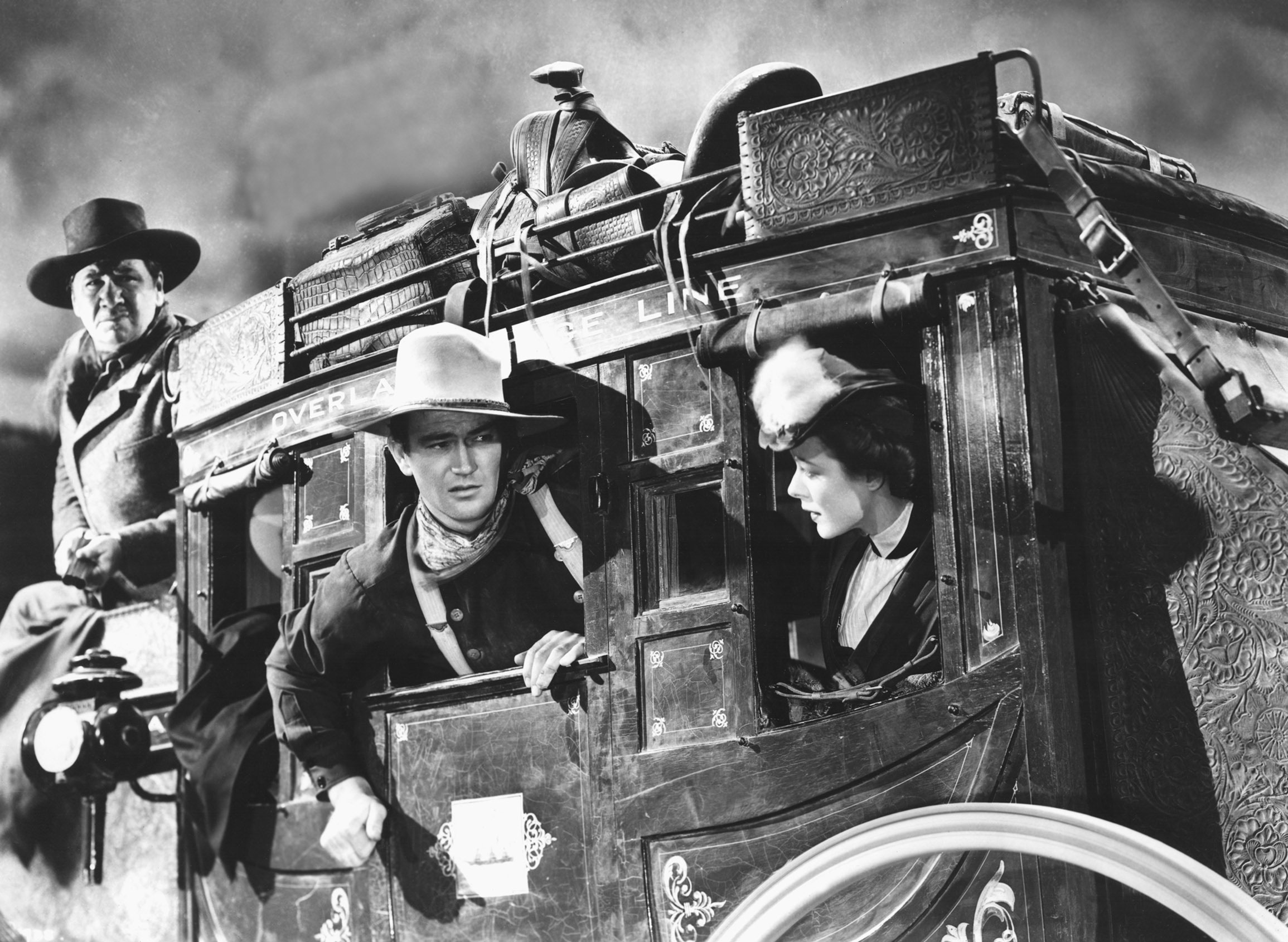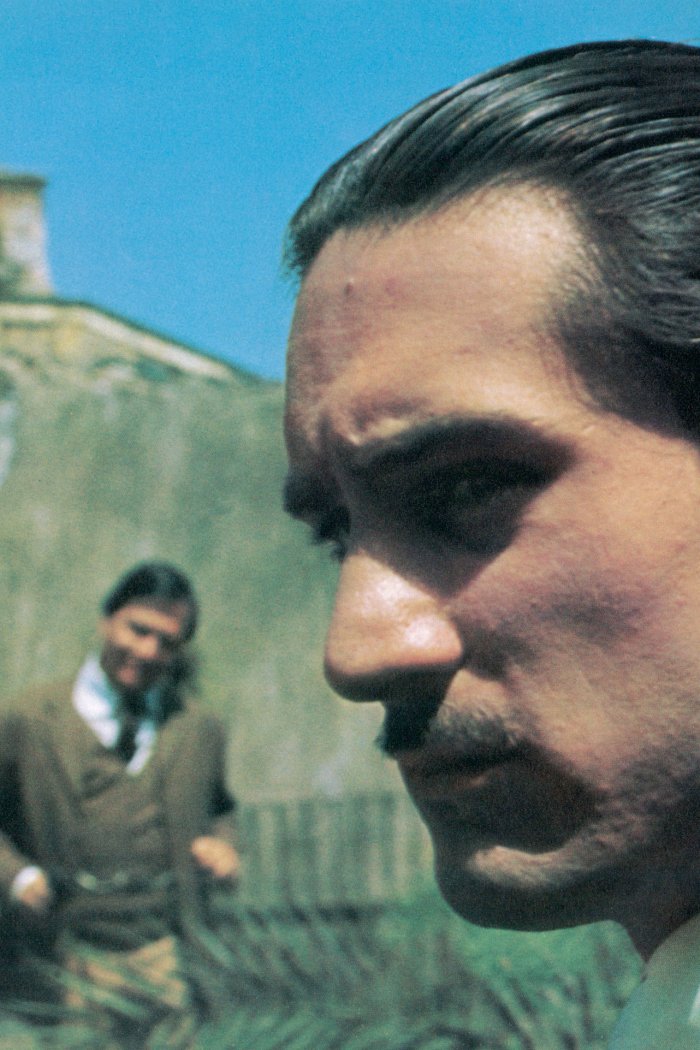John Wayne had appeared in some 80 movies, sometimes in uncredited roles, by the time he showed up as the Ringo Kid in John Ford’s majestically modest western Stagecoach. It was the role that made him a star, and it’s easy to see why: he moves with the easy, lanky grace of a lynx, and phrases his lines with the same languorous poise. In Stagecoach, a group of seven mismatched passengers, the Ringo Kid among them, rumble unsteadily through hostile Apache territory, all aware they may not reach their destination alive. There are two ladies aboard, Louise Platt’s prim, pregnant army wife Lucy Mallory, and Claire Trevor’s pensive, wary Dallas, a woman of ill repute. Several of the passengers—like John Carradine’s Hatfield, a professional gambler and a gentleman only in the self-proclaimed sense—look upon Dallas with disdain, but Ringo sees her as a social equal, fostering a mini-model of democracy within the confines of this little coach. Wayne doesn’t always get credit for being a subtle actor, but in Stagecoach, he imparts a whole code of decency with the merest glance, and charmingly so. Ford had made his first films in the silent era; by the time of Stagecoach, he’d been working in Hollywood for more than 20 years. This gorgeous and vivid western, one in which each character is sharply drawn, is the work of a director who knew just how to get what he wanted—and to anticipate so many of the things we as viewers want, too, before we’ve even had a chance to dream of them.
- Inside Elon Musk’s War on Washington
- Meet the 2025 Women of the Year
- The Harsh Truth About Disability Inclusion
- Why Do More Young Adults Have Cancer?
- Colman Domingo Leads With Radical Love
- How to Get Better at Doing Things Alone
- Cecily Strong on Goober the Clown
- Column: The Rise of America’s Broligarchy





